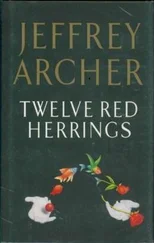Alan Bradley - A Red Herring Without Mustard - A Flavia de Luce Novel
Здесь есть возможность читать онлайн «Alan Bradley - A Red Herring Without Mustard - A Flavia de Luce Novel» весь текст электронной книги совершенно бесплатно (целиком полную версию без сокращений). В некоторых случаях можно слушать аудио, скачать через торрент в формате fb2 и присутствует краткое содержание. Жанр: Старинная литература, на русском языке. Описание произведения, (предисловие) а так же отзывы посетителей доступны на портале библиотеки ЛибКат.
- Название:A Red Herring Without Mustard: A Flavia de Luce Novel
- Автор:
- Жанр:
- Год:неизвестен
- ISBN:нет данных
- Рейтинг книги:4 / 5. Голосов: 1
-
Избранное:Добавить в избранное
- Отзывы:
-
Ваша оценка:
- 80
- 1
- 2
- 3
- 4
- 5
A Red Herring Without Mustard: A Flavia de Luce Novel: краткое содержание, описание и аннотация
Предлагаем к чтению аннотацию, описание, краткое содержание или предисловие (зависит от того, что написал сам автор книги «A Red Herring Without Mustard: A Flavia de Luce Novel»). Если вы не нашли необходимую информацию о книге — напишите в комментариях, мы постараемся отыскать её.
A Red Herring Without Mustard: A Flavia de Luce Novel — читать онлайн бесплатно полную книгу (весь текст) целиком
Ниже представлен текст книги, разбитый по страницам. Система сохранения места последней прочитанной страницы, позволяет с удобством читать онлайн бесплатно книгу «A Red Herring Without Mustard: A Flavia de Luce Novel», без необходимости каждый раз заново искать на чём Вы остановились. Поставьте закладку, и сможете в любой момент перейти на страницу, на которой закончили чтение.
Интервал:
Закладка:
Since good works do not generally require trumpeting, I did not feel it necessary to mention the assistance I had offered to Fenella. And as it turned out, I was right to hold my tongue, because the vicar quickly brought up the subject himself.
“Yes,” he said. “Your father tells me you were allowed rather a luxurious Sabbath lie-in. Really, Flavia, it was most kind of you to play the Good Samaritan, as it were. Most kind.”
“It was nothing,” I said, with becoming modesty. “I was happy to help.”
The vicar got to his feet and stretched. He had been snipping away with a pair of kitchen scissors at the tufts of grass growing round the wooden legs of the St. Tancred’s signboard.
“God’s work takes many strange forms,” he said, when he saw me grinning at his handiwork.
“I visited the poor soul in hospital,” he went on, “directly after Morning Prayer.”
“You spoke to her?” I asked, astonished.
“Oh, dear, no. Nothing like that. I’m sure she wasn’t even aware of my presence. Nurse Duggan told me that she hadn’t regained consciousness—the Gypsy woman, of course, not Nurse Duggan—and that she—the Gypsy woman, I mean—had spent a restless night, crying out every now and then about something that was hidden. The poor thing was delirious, of course.”
Something hidden? What could Fenella have meant?
It was true that she had mentioned to me the woman whose fortune she had told just before mine: something about something that was buried in the past, but would that count as hidden? It was worth a try.
“It’s too bad, isn’t it?” I said, shaking my head. “Hers was the most popular pitch at the fête—until the tent caught fire, that is. She was telling me how startled someone was—the person who went in just before me, I believe—when she happened to guess correctly something about her past.”
Had a little cloud drifted across the vicar’s face?
“Her past? Oh, I should hardly think so. The person whose fortune was told immediately before yours was Mrs. Bull.”
Mrs. Bull ? Well, I’ll be blowed ! I’d have been willing to take an oath that Mrs. Bull’s first encounter with Fenella in several years had taken place in my presence, on Saturday, in the Gully—after the fête.
“Are you sure?” I asked.
“Quite sure,” the vicar said. “I was standing near the coconut pitch talking to Ted Sampson when Mrs. Bull asked me to keep an eye on her tots for a few minutes. ‘I shan’t be long, Vicar,’ she said. ‘But I must have my fortune read—make sure there are no more of these little blighters in my future.’
“She was joking, of course, but still, it seemed a very odd thing to say, under the circumstances.” The vicar reddened. “Oh, dear, I fear I’ve been indiscreet. You must forget my words at once.”
“Don’t worry, Vicar,” I told him. “I won’t say a word.”
I went through the motions of sewing my lips shut with a needle and a very long piece of thread. The vicar winced at my grimaces.
“Besides,” I said, “it’s not the same as if the Bulls were your parishioners.”
“It is the same,” he said. “Discretion is discretion—it knows no religious bounds.”
“Is Mrs. Bull a Hobbler?” I asked suddenly.
His brow wrinkled. “A Hobbler? Whatever makes you think that? Dear me, that somewhat peculiar faith was, if I am not mistaken, suppressed in the late eighteenth century. There have been rumors, of course, but one mustn’t—”
“Was it?” I interrupted. “Suppressed, I mean?”
Could it be that the Hobblers had gone underground so effectively that their very presence in Bishop’s Lacey was disbelieved by the vicar of St. Tancred’s?
“Whatever her allegiances,” the vicar continued, “we mustn’t pass judgment upon the beliefs of others, must we?”
“I suppose not,” I said, just as the meaning of his earlier words struck home.
“Did you say you were talking to a Mr. Sampson? Mr. Sampson of East Finching?”
The vicar nodded. “Ted Sampson. He still comes back to lend a hand with the tents and booths. He’s been doing it man and boy for twenty-five years. He says it makes him feel close to his parents—they’re both of them buried here in the churchyard, you understand. Of course he’s lived in East Finching since he married a—”
“Yes?” I said. If I’d had whiskers they’d have been trembling.
“Oh dear,” the vicar said. “I fear I’ve said too much. You must excuse me.”
He dropped to his knees and resumed his snipping at the grass, and I knew that our interview was at an end.

Gladys’s tires purred on the tarmac as we sped north towards East Finching. It was easy going at first, but then as the road rose up, fold upon fold, into the encircling hills, I had to lean on her pedals like billy-ho.
By the time I reached Pauper’s Well at the top of Denham Rise, I was panting like a dog. I dismounted and, leaning Gladys against the stone casing of the well, dropped to my knees for a drink.
Pauper’s Well was not so much a well as a natural spring: a place where the water gurgled up from some underground source, and had done so since before the Romans had helped themselves to an icy, refreshing swig.
Spring water, I knew, was a remarkable chemical soup: calcium, magnesium, potassium, iron, and assorted salts and sulphates. I grabbed the battered old tin cup that hung from a chain, scooped it full of the burbling water, and drank until I thought I could feel my bones strengthening.
With the water still dribbling down my chin, I stood up and looked out over the countryside. Behind me, spread out like a handkerchief for a doll’s picnic, was Bishop’s Lacey. Through it, this side of the high street, the river Efon wound its lazy way round the village before ambling off to the southwest and Buckshaw.
Now, almost two weeks into the harvest, most of the countryside had traded its intense summer green for a paler, grayish shade, as if Mother Nature had nodded off a little, and let the colors leak away.
In the distance, like a black bug crawling up the hillside, a tractor dragged a harrow across a farmer’s field, the buzz of its engine coming clearly to my ears.
From up here, I could see the Palings to the south, a green oasis at a bend in the river. And there was Buckshaw, its stones glowing warmly in the sunlight, as if they had been cut from precious citrine and polished by a master’s hand.
Harriet’s house , I thought, although for the life of me I don’t know why. Something was welling up in my throat. It must have been something in the well water. I took Gladys from her resting place and shoved off towards East Finching.
From this point on, the journey was all downhill. After a couple of jolly good pumps to get up speed, I put my feet up on the handlebars, and Gladys and I with the wind in our teeth came swooping like a harrier down the dusty road and into East Finching’s high street.
Unlike its neighbors, Malden Fenwick and Bishop’s Lacey, East Finching was not a pretty bit of Ye Olde England. No half-timbered houses here—no riot of flowers in cottage gardens. Instead, the word that came to mind was “grubby.”
At least half the shops in the high street had boarded-up windows, while those that were apparently still in business had rather a sad and defeated look.
In the window of a tobacconist’s shop on the corner, a crooked sign advertised: Today’s Papers .
A bell above the door gave out a harsh jangle as I stepped inside, and a gray-haired man with old-fashioned square spectacles looked up from his newspaper.
Читать дальшеИнтервал:
Закладка:
Похожие книги на «A Red Herring Without Mustard: A Flavia de Luce Novel»
Представляем Вашему вниманию похожие книги на «A Red Herring Without Mustard: A Flavia de Luce Novel» списком для выбора. Мы отобрали схожую по названию и смыслу литературу в надежде предоставить читателям больше вариантов отыскать новые, интересные, ещё непрочитанные произведения.
Обсуждение, отзывы о книге «A Red Herring Without Mustard: A Flavia de Luce Novel» и просто собственные мнения читателей. Оставьте ваши комментарии, напишите, что Вы думаете о произведении, его смысле или главных героях. Укажите что конкретно понравилось, а что нет, и почему Вы так считаете.












